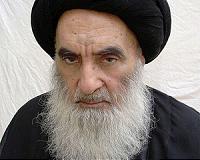| . |  |
. |
Baghdad (AFP) Aug 8, 2010 Weekend violence across Iraq killed 60 people, officials said on Sunday, just days ahead of the start of the holy Muslim fasting month of Ramadan when insurgents typically step up their attacks. The unrest has fuelled concerns about security here -- more than 100 people have died so far this month -- amid a massive pullout of American forces, although US officers insist that Iraqi soldiers and police are up to the task. Iraq is also grappling with a five-month-long political impasse after March 7 parliamentary elections failed to produce a clear winner, ushering in as yet fruitless coalition negotiations between the leading parties. The death toll from three explosions in the southern port city of Basra on Saturday evening, which officials said were caused by bombs and not a power generator short circuit as first believed, rose to 43 on Sunday. "We received 43 corpses, and 185 people have been wounded," said Dr Riyadh Abdelamir, director of Basra province's health department, adding that women and children were among the injured. Ali al-Maliki, the head of the provincial council's security committee, said the deaths -- from a double car bombing and a third roadside bomb which caused a large fire -- were "the result of terrorist action." The city's police command had late on Saturday attributed the explosion to the short-circuit of a communal electricity generator. Eyewitnesses at the crowded Ashaar market in the centre of Basra, Iraq's third largest city, told AFP there were three explosions between 7:00 pm and 7:30 pm, but the cause was not clear according to their accounts. Kadhim Ali Jaffar, a 61-year-old market salesman, gave a harrowing account of the death of his son, Jawad, 25, also a salesman. "He did not come back after the explosion so I started to look for him in the hospitals," said Jaffar, crying and shaking as he recounted the incident. "The first one told me he was dead and in the morgue. When I went there I found a young man but he wasn't my son. I continued to look until I found him in the fridge at another hospital." On Sunday morning, meanwhile, a suicide bomber detonated a car packed with explosives at a petrol station in Ramadi, west of Baghdad and the capital of Anbar province, killing six people, medical and security officials said. Two women and a child were among the dead, while 29 others were wounded. Also in Anbar, masked gunmen robbed a currency exchange owner and detonated their empty explosives-laden car when police tracked them down, killing two people, officials and the robbery victim said. On Saturday, seven policemen were among eight people killed near Baghdad and in north Iraq, including four who died in a fierce gunfight in a Sunni neighbourhood of the capital. Iraqi Prime Minister Nuri al-Maliki, fighting to keep his job after narrowly losing the March election, insisted the security situation was not getting worse, "but some gaps have opened up, here and there, from time to time." "Armed groups will not be able to take Iraq back to the old days," he said during a visit to Arbil, referring to the peak of a brutal sectarian war that blighted the country from 2006 to 2007. An American soldier was also killed on Saturday in the central province of Babil, the US military said, although the circumstances of the soldier's death were not released. The latest death brought to 4,414 the number of US troops who have died in Iraq since the 2003 invasion that ousted Saddam Hussein, according to an AFP tally based on the independent website www.icasualties.org. The weekend's violence comes ahead of Ramadan, expected to begin in Iraq on Wednesday or Thursday. In previous years the holy month has coincided with a spike in insurgent activity. The unrest also comes as US forces reduce troop levels ahead of an August 31 deadline to end combat operations here, by which time there will be 50,000 American soldiers in Iraq from around 64,000 currently. The commander of American troops in Iraq, General Ray Odierno, told ABC's "This Week" programme that Iraqi forces were capable of securing the country. "For the last 20 months, we've been slowly and deliberately turning over more and more responsibility to them, and they have stepped up," he said.
Share This Article With Planet Earth
Related Links Iraq: The first technology war of the 21st century
 Obama asks Shiite cleric to help settle Iraq impasse: report
Obama asks Shiite cleric to help settle Iraq impasse: reportWashington (AFP) Aug 6, 2010 President Barack Obama has sent a letter to Iraq's top Shiite cleric, Ayatollah Ali al-Sistani, urging him to persuade the country's squabbling political leaders to form a new government, Foreign Policy magazine reported Friday. The magazine's online edition, which cited an unnamed individual briefed by members of the cleric's family as its source, said that the letter was delivered to Sista ... read more |
|
| The content herein, unless otherwise known to be public domain, are Copyright 1995-2010 - SpaceDaily. AFP and UPI Wire Stories are copyright Agence France-Presse and United Press International. ESA Portal Reports are copyright European Space Agency. All NASA sourced material is public domain. Additional copyrights may apply in whole or part to other bona fide parties. Advertising does not imply endorsement,agreement or approval of any opinions, statements or information provided by SpaceDaily on any Web page published or hosted by SpaceDaily. Privacy Statement |